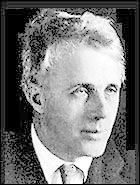Издателство |
| :. Издателство
LiterNet |
Медии |
| :. Електронно списание LiterNet |
| :. Електронно списание БЕЛ |
| :. Културни
новини |
Каталози |
| :. По
дати : Март |
| :. Електронни книги |
| :. Раздели / Рубрики |
| :. Автори |
| :. Критика за авторите |
Книжарници |
| :. Книжен
пазар |
| :. Книгосвят: сравни цени |
Ресурси |
| :. Каталог за култура |
| :. Артзона |
| :. Писмена реч |
За
нас |
| :. Всичко за LiterNet |
ROBERT FROST
(1874-1963)
 Robert
Lee Frost, born in San Francisco, March 26, 1874, died in Boston, January 29,
1963, was one of America's leading 20th-century poets and a four-time winner
of the Pulitzer Prize. An essentially pastoral poet often associated with rural
New England, Frost wrote poems whose philosophical dimensions transcend any
region. Although his verse forms are traditional - he often said, in a dig at
arch rival Carl Sandburg, that he would as soon play tennis without a net as
write free verse, - he was a pioneer in the interplay of rhythm and meter and
in the poetic use of the vocabulary and inflections of everyday speech. His
poetry is thus both traditional and experimental, regional and universal.
Robert
Lee Frost, born in San Francisco, March 26, 1874, died in Boston, January 29,
1963, was one of America's leading 20th-century poets and a four-time winner
of the Pulitzer Prize. An essentially pastoral poet often associated with rural
New England, Frost wrote poems whose philosophical dimensions transcend any
region. Although his verse forms are traditional - he often said, in a dig at
arch rival Carl Sandburg, that he would as soon play tennis without a net as
write free verse, - he was a pioneer in the interplay of rhythm and meter and
in the poetic use of the vocabulary and inflections of everyday speech. His
poetry is thus both traditional and experimental, regional and universal.
After his father's death in 1885, when young Frost was 11, the family left California and settled in Massachusetts. Frost attended high school in that state, then taught school and worked in a mill and as a newspaper reporter. In 1894 he sold "My Butterfly: An Elegy" to "The Independent", a New York literary journal. A year later he married Elinor White, with whom he had shared valedictorian honors at Lawrence High School. From 1897 to 1899 he attended Harvard College as a special student but left without a degree. Over the next ten years he wrote (but rarely published) poems, operated a farm in Derry, New Hampshire (purchased for him by his paternal grandfather), and supplemented his income by teaching.
In 1912, at the age of 38, he sold the farm and used the proceeds to take his family to England, where he could devote himself entirely to writing. His efforts to establish himself and his work were almost immediately successful. "A Boy's Will" was accepted by a London publisher and brought out in 1913, followed a year later by "North of Boston". Favorable reviews on both sides of the Atlantic resulted in American publication of the books by Henry Holt and Company, Frost's primary American publisher, and in the establishing of Frost's transatlantic reputation.
As part of his determined efforts on his own behalf, Frost had called on several prominent literary figures soon after his arrival in England. One of these was Ezra Pound, who wrote the first American review of Frost's verse for Harriet Munroe's "Poetry magazine".
The Frosts sailed for the United States in February 1915 and landed in New York City two days after the U.S. publication of "North of Boston" (the first of his books to be published in America). Sales of that book and of "A Boy's Will" enabled Frost to buy a farm in Franconia, New Hampshire; to place new poems in literary periodicals and publish a third book, "Mountain Interval" (1916); and to embark on a long career of writing, teaching, and lecturing. In 1924 he received a Pulitzer Prize in poetry for "New Hampshire" (1923). He was lauded again for "Collected Poems" (1930), "A Further Range" (1936) and "A Witness Tree" (1942). Over the years he received an unprecedented number and range of literary, academic, and public honors.
The poetic and political conservatism of Frost caused him to lose favor with some literary critics, but his reputation as a major poet is secure. He unquestionably succeeded in realizing his life's ambition: to write "a few poems it will be hard to get rid of."
=============================
© E-publisher LiterNet, 07.07.2009
The Sun Is but a Morning Star. Anthology of American Literature. Edited by Albena
Bakratcheva. Varna: LiterNet, 2008-2010
